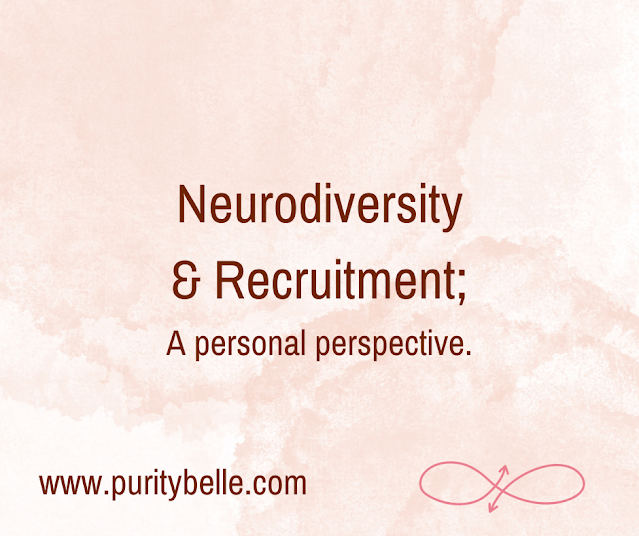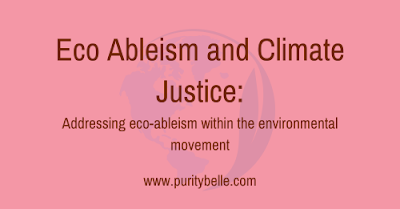Neurodiversity and Recruitment
As a late diagnosed autistic person, and with a new qualification (Master's in Climate Change), I've tentatively been considering looking at roles specific to my qualification. It's by no means a given that I really want to make a shift (I love my current job!) but it has caused me to explore this area a little bit, in a way that I haven't for some time. The reason I mention the autism, is really because, being in that recruitment sphere, and experiencing it with a different lens, has made me reflect a lot on recruitment for neurodivergent people. It has to be said that some progress is being made in this area, with an acknowledgement of the fact that traditional recruitment processes may not be well equipped to bring out the best in neurodivergent people. There is an Irish organisation Specialisterne which, (as the name suggests) specialises in recruitment of neurodivergent people. From their website:
'We match the skills and characteristics of these individuals with roles that will suit their unique ways of working, while also harnessing their particular strengths. We help them find employers who will make the most of their abilities while appropriately accommodating their challenges.'
For me, the idea of a 'unique way of working' makes sense and connects with my own experience. I can often have a different take on topics or processes, or use a methodology or way of working that may not fit exactly with the norms. I tend to work in intense bursts, with in between periods of 'zoning out'. I say zoning out because this is the best way I can describe it, and it may look like a lack of productivity, but in fact it's a very productive way of working for me. If I have something I need to concentrate on, or come up with ideas for, the best way for me to get results is to allow myself to side track on to something else that I find interesting and then the other project kind of works like a background computer programme in my head. So instead of struggling with the main project, and using the above method, I can often end up successfully accomplishing two or three things at the same time. This obviously is my own experience, and I can't speak for all autistic people but I think it's true to say that many autistic people like to try things a little differently, or need particular accomodations in order to be the best they can be in a work environment.
I attended an interview recently, and again, with a new perspective on this, I realised, in the aftermath, how unsuited traditional interviews are for me. This is no reflection whatsoever on individuals or any particular organisation, because recruitment processes have similarities across the board, but it did make me wish that there was better awareness of neurodivergence/disability inclusion. This awareness, I feel, shouldn't be dependent on candidates declaring a disability, but rather having an openness to diversity in general.
Particular ways in which my autism creates difficulty in interviews are :
- The need to maintain eye contact.
- Questions which don't make sense.
- Processing time.
- The need to keep still.
- Use clear and concise language.
- Make your interviews inclusive - 'Traditional interview techniques rely heavily on things like communication, eye contact, confidence and body language, something autistic candidates could experience challenges with.'
- Avoid 'left-field' quesions - 'Left field questions are questions to catch a candidate off guard, and can be especially difficult for autistic candidates.'
'People that are neurodivergent have talents, perspectives and skills that can be beneficial in many work environments.
Hiring neurodiverse employees can provide companies with a competitive edge that brings measurable benefits, both financially and in terms of workplace culture.'





